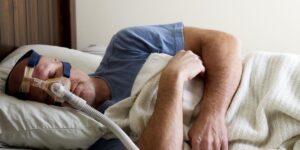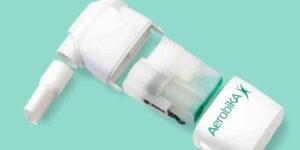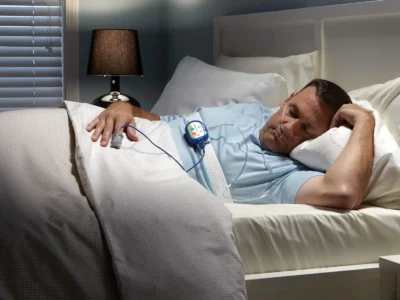
Choosing the Right CPAP Machine: A Complete Buyer’s Guide for Better Sleep
Oct 28 2025 Sleep Apnea Treatment CPAP machines CPAP therapy healthy sleep sleep apnea sleep apnea complications sleep apnea treatments sleep disorders sleep health sleep medicine sleep quality sleep studySleep is essential for overall health, yet millions of adults struggle with sleep apnea—a common sleep disorder that disrupts breathing during rest. Continuous Positive Airway Pressure (CPAP) machines have become the gold standard for managing sleep apnea. Choosing the right CPAP machine can dramatically improve sleep quality, prevent complications, and support long-term health.
This guide will help you understand CPAP therapy, compare machine types, and offer practical tips for getting the most out of your treatment.
What is Sleep Apnea?
Sleep apnea is a condition where your airway becomes partially or fully blocked while sleeping, causing repeated pauses in breathing. These pauses reduce oxygen supply to the body, leading to fatigue, cardiovascular strain, and other health risks.
See more: What Is an Aerobika Device and How Does It Help With Mucus Clearance?
Common Symptoms of Sleep Apnea:
Loud snoring
Gasping or choking during sleep
Excessive daytime fatigue
Morning headaches
Mood swings or irritability
If left untreated, sleep apnea can increase the risk of high blood pressure, heart disease, stroke, and diabetes. A sleep study is the first step in diagnosing this condition and determining the best sleep apnea treatments.
How CPAP Machines Improve Sleep Quality
A CPAP machine delivers continuous, gentle air pressure through a mask to keep your airway open during sleep. This ensures steady oxygen flow, reduces apneas, and allows you to reach deeper, restorative stages of sleep.
Real-World Example:
Sarah, a 45-year-old teacher with moderate sleep apnea, struggled with daytime fatigue and concentration. After using a CPAP machine, she reported:
Improved focus and energy at work
Fewer nighttime awakenings
Lower blood pressure and reduced snoring
CPAP therapy not only restores normal breathing but also enhances overall sleep health and daily functioning.
Types of CPAP Machines
Choosing the right CPAP machine depends on your comfort preferences, breathing needs, and lifestyle. Here are the main types:
1. Standard CPAP
Delivers a fixed air pressure throughout the night
Best for patients with consistent sleep apnea patterns
2. Auto CPAP (APAP)
Adjusts air pressure automatically based on breathing patterns
Ideal for those with variable airway obstruction
3. Bi-level CPAP (BiPAP)
Provides different pressures for inhalation and exhalation
Suitable for patients with complex sleep apnea or other respiratory issues
4. Travel CPAP
Compact and lightweight
Convenient for frequent travelers or those with limited space
Key Features to Consider
When selecting a CPAP machine, consider the following:
Mask type: Full-face, nasal, or nasal pillow
Humidifier: Reduces nasal dryness
Pressure settings: Based on your sleep study results
Noise level: Look for quiet operation for uninterrupted sleep
Data tracking: Helps your sleep specialist monitor therapy effectiveness
Benefits of Using CPAP Machines
1. Improved Sleep Quality
CPAP machines allow uninterrupted sleep cycles, which enhances memory, focus, and mood.
2. Reduced Cardiovascular Risk
Sleep apnea increases heart strain due to oxygen drops. CPAP therapy:
Lowers blood pressure
Reduces irregular heartbeats
Minimizes risk of heart attack and stroke
3. Enhanced Daytime Energy
By preventing apneas and improving oxygen levels, CPAP users experience increased alertness and reduced daytime fatigue.
Tips for New CPAP Users
Starting CPAP therapy can feel overwhelming, but these tips can help:
Proper mask fitting: Ensures comfort and prevents leaks
Use a humidifier: Moist air prevents irritation
Clean the machine regularly: Maintains hygiene and performance
Side sleeping: Improves airflow and reduces snoring
Track progress: Many machines store data to help your sleep specialist adjust therapy
Lifestyle Changes That Support CPAP Therapy
Alongside CPAP use, simple lifestyle adjustments can further improve sleep apnea outcomes:
Maintain a healthy weight
Avoid alcohol and sedatives before bedtime
Exercise regularly
Stick to a consistent sleep schedule
Avoid heavy meals close to bedtime
Combining CPAP therapy with these changes enhances sleep quality and overall health.
The Role of Sleep Studies
A sleep study is essential to diagnose sleep apnea and determine the right CPAP settings. During the study, specialists monitor oxygen levels, heart rate, breathing patterns, and sleep cycles. Personalized results ensure effective treatment and optimal machine settings.
Conclusion
Choosing the right CPAP machine is critical for improving sleep quality and preventing complications of sleep apnea. By maintaining steady airflow, enhancing oxygen levels, and supporting heart health, CPAP therapy transforms both nighttime rest and daytime performance.
If you suspect sleep apnea, consult a sleep specialist. A sleep study and the right CPAP machine can make a significant difference in your health and overall quality of life.
FAQS
How does a CPAP machine work for sleep apnea? A CPAP machine delivers steady air pressure to keep the airway open, preventing breathing pauses. This improves oxygen flow, allowing deeper, restorative sleep and reducing symptoms like fatigue and snoring. Can CPAP therapy reduce heart disease risk? Yes. By preventing oxygen drops and reducing strain on the heart, CPAP therapy lowers blood pressure and reduces the risk of heart attack, stroke, and other cardiovascular complications associated with sleep apnea. What type of CPAP machine is best for beginners? For most beginners, a standard or auto-adjusting CPAP (APAP) is ideal. Auto CPAP machines adjust air How do I choose the right mask for CPAP therapy? Masks come in full-face, nasal, and nasal pillow styles. Comfort, fit, and the way you breathe at night are key factors. A well-fitting mask prevents air leaks and improves treatment effectiveness.
Read More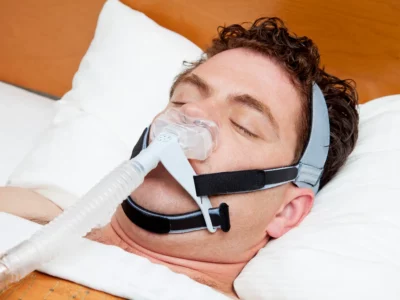
Cost of Sleep Apnea Test: Understanding the Expenses Involved
May 25 2024 Sleep Apnea Treatment sleep apnea test at home australia sleep apnea test melbourne sleep apnea test perth sleep testSleep apnea is a common sleep disorder that affects millions of people worldwide. It is characterized by pauses in breathing during sleep, often accompanied by loud snoring and excessive daytime sleepiness. If left untreated, sleep apnea can lead to various health complications, including high blood pressure, stroke, and heart disease.
Understanding Sleep Apnea
Before delving into the cost of sleep apnea tests, it is important to have a clear understanding of what sleep apnea is and its associated symptoms and risks.
Sleep apnea is a prevalent sleep disorder that affects millions of people worldwide. It is characterized by repeated pauses in breathing during sleep, leading to fragmented and poor-quality sleep. These interruptions in breathing can range from a few seconds to minutes and can occur multiple times throughout the night, disrupting the natural sleep cycle.
What is Sleep Apnea?
Sleep apnea can be categorized into three main types:
Obstructive Sleep Apnea (OSA): This is the most common form of sleep apnea and occurs when the throat muscles relax, causing the airway to become blocked.
Central Sleep Apnea: This type involves the central nervous system and occurs when the brain fails to signal the muscles that control breathing.
Complex Sleep Apnea Syndrome: Also known as treatment-emergent central sleep apnea, this type is a combination of both obstructive and central sleep apnea.
Symptoms and Risks of Sleep Apnea
Common symptoms of sleep apnea go beyond just snoring and can include:
Loud and chronic snoring
Gasping or choking during sleep
Daytime sleepiness and fatigue
Morning headaches
Difficulty concentrating and memory problems
Untreated sleep apnea can have serious health risks, as it puts a strain on the cardiovascular system and can lead to conditions such as hypertension, heart disease, stroke, and diabetes. Additionally, the excessive daytime sleepiness resulting from sleep apnea can increase the risk of workplace or driving accidents, posing a danger to both the individual and others.
The Need for Sleep Apnea Testing
Diagnosing sleep apnea is crucial for personalized treatment and management. Without proper testing, it is difficult to determine the severity of the condition and develop an effective treatment plan.
Sleep apnea is a common but serious sleep disorder that can have significant impacts on an individual’s overall health and quality of life. It is characterized by pauses in breathing or shallow breathing during sleep, leading to poor sleep quality and potential health risks. By undergoing sleep apnea testing, individuals can gain valuable insights into their condition and take proactive steps towards improving their sleep and well-being.
Importance of Diagnosis
A proper diagnosis is essential to understand the specific type and severity of sleep apnea a person may have. This information helps healthcare professionals determine the most suitable treatment options, which can range from lifestyle changes to continuous positive airway pressure (CPAP) therapy or even surgery.
Furthermore, diagnosing sleep apnea early can help prevent complications such as high blood pressure, heart disease, stroke, and diabetes. By addressing the underlying sleep issues, individuals can significantly reduce their risk of developing these serious health conditions.
Different Types of Sleep Apnea Tests
There are various sleep apnea tests available to diagnose the condition. These tests can be conducted in a sleep lab or at home, depending on the patient’s needs and circumstances.
In-lab polysomnography is a comprehensive sleep study that monitors various body functions during sleep, including brain activity, eye movements, heart rate, and breathing patterns. Home sleep apnea tests, on the other hand, are convenient and cost-effective options that allow individuals to undergo testing in the comfort of their own bed. These tests typically involve wearing a small device that records breathing patterns, oxygen levels, and heart rate while sleeping. Find more at https://www.sleepfoundation.org/physical-health/what-are-normal-oxygen-levels-during-sleep
Breaking Down the Cost of Sleep Apnea Test
When considering a sleep apnea test, it is important to understand the associated costs and factors that can influence the expenses involved.
In-Lab Sleep Study Costs
An in-lab sleep study, also known as a polysomnography (PSG), is a comprehensive sleep test conducted in a specialized sleep center or hospital. The cost of an in-lab sleep study can vary depending on factors such as geographical location and the specific services provided. On average, an in-lab sleep study can cost between $1,000 and $5,000.
Home Sleep Apnea Test Costs
A home sleep apnea test (HSAT) is a more convenient and cost-effective alternative to an in-lab sleep study. It involves the use of portable devices that measure various sleep parameters, such as airflow, oxygen levels, and heart rate. The cost of a home sleep apnea test typically ranges between $200 and $500, making it a more affordable option for many. Learn more click here
Factors Influencing the Cost of Sleep Apnea Test
Several factors can influence the overall cost of a sleep apnea test, including insurance coverage, out-of-pocket expenses, and geographical location.
Insurance Coverage and Out-of-Pocket Expenses
The extent of insurance coverage for sleep apnea tests can vary. Some insurance plans may cover a portion or the full cost of testing, while others may require a copayment or deductible. It is important to check with your insurance provider to understand the coverage and any potential out-of-pocket expenses.
Geographic Location and Cost Variations
The cost of sleep apnea tests can vary depending on the geographical location. Urban areas and regions with a higher cost of living may have higher testing costs compared to rural areas. It is advisable to research local sleep centers and compare prices to ensure you find the most affordable option available.
Ways to Manage Sleep Apnea Test Costs
While sleep apnea testing can be costly, there are several strategies to manage and mitigate the expenses involved.
Health Insurance and Medicare
Make sure to review your health insurance policy to understand what is covered under your plan. Medicare and some private insurance providers offer coverage for sleep apnea tests if medically necessary. Contact your insurance company to determine coverage options and any required authorization or documentation.
Payment Plans and Financial Assistance
If the cost of a sleep apnea test is a financial burden, consider discussing payment plans or financial assistance options with the sleep center or hospital. Some facilities offer flexible payment arrangements or can provide information about charitable or nonprofit organizations that assist with medical costs.
By understanding the expenses involved and exploring potential cost-saving measures, you can take proactive steps to manage the cost of sleep apnea testing. Remember, investing in proper diagnosis and treatment is essential to improving your overall health and quality of life.
Read More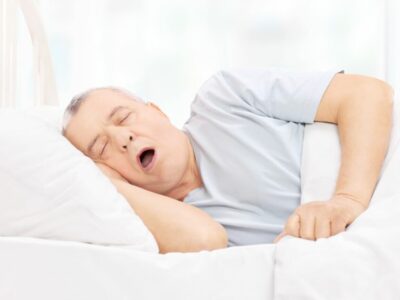
Sleep Study Adelaide: Evaluating Sleep Patterns in South Australia
May 25 2024 Sleep Apnea Treatment sleep apnea test at home australia sleep apnea test melbourne sleep apnea test perth sleep testSleep plays a crucial role in our overall well-being. It is essential for our physical health and mental well-being. In South Australia, a team of experts at Sleep Study Adelaide is dedicated to evaluating sleep patterns and understanding their impact on individuals. Through their research, they hope to shed light on the science behind sleep patterns and contribute to the development of effective strategies for improving sleep quality.
Understanding the Importance of Sleep
Sleep is not just a period of rest; it is a fundamental biological process that is essential for our bodies to function optimally. It provides our bodies with an opportunity to repair cells, restore energy levels, and regulate various physiological processes.
Furthermore, sleep is a complex process that involves different stages, including rapid eye movement (REM) and non-REM sleep. Each stage plays a crucial role in different bodily functions, such as memory consolidation, hormone regulation, and tissue repair. REM sleep, in particular, is associated with vivid dreams and is believed to be important for emotional processing and learning. All these parameter are discuss in sleep study adelaide cost
The Role of Sleep in Physical Health
Adequate sleep is crucial for maintaining good physical health. Research has shown that poor sleep is associated with an increased risk of developing chronic conditions such as obesity, diabetes, and cardiovascular diseases. During sleep, our bodies release hormones that regulate appetite and metabolism, ensuring a healthy balance. Additionally, sleep is essential for a strong immune system, as it helps fight off infections and illnesses.
Moreover, sleep deprivation can have a significant impact on physical performance and recovery. Athletes, in particular, rely on quality sleep to support muscle repair, growth, and overall athletic performance. Lack of sleep can lead to decreased coordination, slower reaction times, and increased risk of injuries.
The Impact of Sleep on Mental Well-being
Sleep is closely linked to our mental well-being. It plays a vital role in cognitive processes such as memory consolidation, problem-solving, and creativity. Sufficient sleep is necessary for maintaining optimal mental focus and improving mood regulation. On the other hand, chronic sleep deprivation can lead to increased stress levels, mood disorders, and decreased cognitive performance.
Furthermore, sleep plays a crucial role in emotional regulation and mental health. Adequate sleep is essential for processing emotions, making sound decisions, and coping with daily stressors. Sleep disturbances, such as insomnia or sleep apnea, can exacerbate mental health conditions like anxiety and depression. Prioritizing good sleep hygiene and seeking treatment for sleep disorders are important steps in maintaining overall mental well-being.Find more about depression click here
The Science Behind Sleep Patterns
Our sleep patterns are governed by a complex system known as circadian rhythms. These rhythms are influenced by various factors, including exposure to natural light, lifestyle habits, and personal preferences.
Circadian Rhythms Explained
Circadian rhythms are our internal biological clocks that regulate our sleep-wake cycle. The primary driver of these rhythms is exposure to natural light. Light signals received by special cells in our eyes inform the brain about the time of day, helping to regulate our sleep-wake patterns. Disruptions to our natural circadian rhythms, such as shift work or jet lag, can lead to sleep disorders and a lack of quality sleep.
The Stages of Sleep
Sleep is not a uniform state but comprises different stages that repeat in cycles throughout the night. The two main types of sleep are rapid eye movement (REM) sleep and non-rapid eye movement (NREM) sleep.
NREM sleep consists of three stages: N1, N2, and N3. In N1, the transition from wakefulness to sleep occurs. In N2, brain activity slows down, and the body prepares for deep sleep. N3 is the stage of deep sleep, also known as slow-wave sleep, which is crucial for physical rejuvenation and restoration.
REM sleep, often associated with dreaming, occurs after the NREM stages. During REM sleep, brain activity becomes highly active, similar to when we are awake. This stage is essential for cognitive processes, emotional regulation, and memory consolidation. Find more about NERM at https://phosphorusplatform.eu/activities/conference/nerm
But did you know that sleep patterns can also be influenced by external factors? One such factor is the temperature of our sleeping environment. Research suggests that a cool room temperature, around 65 degrees Fahrenheit (18 degrees Celsius), can promote better sleep. When we sleep, our body temperature naturally drops, and a cooler room can help facilitate this process, allowing us to enter deep sleep more easily.
Another interesting aspect of sleep patterns is the impact of exercise. Regular physical activity has been shown to improve sleep quality and duration. Engaging in moderate-intensity aerobic exercise, such as brisk walking or cycling, can help regulate our circadian rhythms and promote a more restful sleep. However, it’s important to note that exercising too close to bedtime can have the opposite effect, as it may increase alertness and make it harder to fall asleep.
Understanding the science behind sleep patterns is crucial for maintaining optimal sleep health. By paying attention to our circadian rhythms, creating a sleep-friendly environment, and incorporating regular exercise into our routine, we can enhance the quality of our sleep and wake up feeling refreshed and rejuvenated.
The Process of a Sleep Study
For individuals who experience sleep-related difficulties, undergoing a sleep study can provide valuable insights into their sleep patterns and help diagnose potential sleep disorders.
During a sleep study, a team of trained professionals carefully monitors and analyzes various aspects of a person’s sleep, from brain activity to breathing patterns, to gain a comprehensive understanding of their sleep health.
Patients are often asked to arrive at the sleep laboratory in the evening to begin the preparation process. The sleep technologists will then attach sensors and electrodes to the patient’s scalp, face, chest, and legs to collect data throughout the night. While this may seem intrusive, the sensors are painless and designed to be as minimally disruptive as possible to ensure a natural sleep experience.
Preparing for a Sleep Study
Prior to a sleep study, participants are provided with specific instructions to ensure accurate results. It is essential to follow these instructions carefully, which may involve avoiding caffeine and alcohol, adhering to regular sleep schedules, and refraining from certain medications.
Additionally, patients are encouraged to bring items that will help them feel more comfortable during the study, such as their own pillow or pajamas. Creating a sleep environment that closely resembles their typical setting can lead to more accurate results.
What Happens During a Sleep Study
A sleep study typically takes place in a sleep laboratory or clinic, where individuals sleep in a controlled environment while their sleep patterns are monitored. Various devices, such as electrodes, are used to record brain activity, eye movements, muscle tone, heart rate, and breathing patterns. These recordings provide valuable data to assess sleep quality, identify disruptions, and diagnose sleep disorders.
Throughout the night, the sleep technologists will observe the patient from a separate room, monitoring the data in real-time to ensure the accuracy of the recordings. This constant supervision allows for any necessary adjustments to be made to guarantee the best possible outcome from the study.
Sleep Disorders and Their Prevalence in South Australia
Sleep disorders are prevalent in South Australia and can significantly impact individuals’ quality of life. Understanding these disorders is crucial for developing effective treatment strategies.
When it comes to sleep disorders, the impact goes beyond just feeling tired the next day. Chronic sleep issues can lead to a range of health problems, including increased risk of heart disease, diabetes, and mental health disorders. This underscores the importance of addressing sleep disorders promptly and effectively.
Common Sleep Disorders
There are numerous sleep disorders that can disrupt sleep patterns and impact overall well-being. Some common sleep disorders include insomnia, sleep apnea, narcolepsy, restless legs syndrome, and parasomnias such as sleepwalking or night terrors.
Insomnia, characterized by difficulty falling asleep or staying asleep, is one of the most prevalent sleep disorders worldwide. Sleep apnea, a condition where breathing repeatedly stops and starts during sleep, can have serious consequences if left untreated. Narcolepsy, on the other hand, is a neurological disorder that affects the brain’s ability to regulate sleep-wake cycles, leading to excessive daytime sleepiness.Learn more click here
Statistics on Sleep Disorders in South Australia
A recent study conducted by Sleep Study Adelaide revealed alarming statistics regarding sleep disorders in South Australia. It estimated that approximately 20% of the population suffers from chronic insomnia, while sleep apnea affects around 10% of individuals. These numbers highlight the need for further research and targeted interventions to address sleep-related issues in the region.
Furthermore, the impact of sleep disorders extends beyond the individual level to affect public health and safety. Sleep-deprived individuals are at a higher risk of accidents, both on the road and in the workplace, due to impaired cognitive function and decreased alertness. By addressing the prevalence of sleep disorders in South Australia, not only can we improve the well-being of individuals, but also create a safer environment for the community as a whole.
The Role of Sleep Study Adelaide in Sleep Research
Sleep Study Adelaide is committed to advancing sleep research and making meaningful contributions to the field. Understanding the complexities of sleep and its impact on overall health is at the core of their mission.
Established as a leading institution in sleep studies, Sleep Study Adelaide has a multidisciplinary team of experts dedicated to unraveling the mysteries of sleep. Their state-of-the-art facilities and cutting-edge technology enable them to conduct comprehensive research that delves deep into the science of sleep.
The Objectives of Sleep Study Adelaide
One of the primary objectives of Sleep Study Adelaide is to understand the underlying causes and consequences of sleep disorders. By conducting extensive research, their team aims to develop effective strategies for prevention, diagnosis, and treatment of sleep-related issues. Additionally, they strive to raise awareness about the importance of adequate sleep and promote healthy sleep habits across the community.
Moreover, Sleep Study Adelaide is actively involved in community outreach programs to educate the public about the significance of good sleep hygiene. By organizing workshops, seminars, and public events, they aim to empower individuals to take charge of their sleep health and make informed decisions for a better quality of life.
The Findings and Contributions of Sleep Study Adelaide
Over the years, Sleep Study Adelaide has made significant contributions to understanding sleep patterns and their impact on individuals. Their research findings have helped identify risk factors for sleep disorders and develop tailored interventions to improve sleep quality. Through collaboration with healthcare professionals, educators, and policymakers, Sleep Study Adelaide continues to drive positive changes in sleep health in South Australia.
Furthermore, the research conducted at Sleep Study Adelaide has not only enhanced our understanding of sleep but has also paved the way for innovative treatments and interventions. By partnering with pharmaceutical companies and medical device manufacturers, they are at the forefront of translating research findings into practical solutions that benefit individuals suffering from sleep disorders.
Conclusion
Sleep Study Adelaide plays a crucial role in evaluating sleep patterns in South Australia. Their research and findings contribute to understanding the science behind sleep, diagnosing sleep disorders, and developing effective strategies for treatment. By prioritizing sleep health, individuals can improve their overall quality of life and well-being. With ongoing efforts and collaboration, Sleep Study Adelaide aims to make a lasting impact and promote healthy sleep habits throughout the community.
Read More
Does weight loss eliminate sleep apnea?
Dec 30 2022 Sleep Apnea Treatment how does sleep apnea happen sleep apnea australia sleep apnea solutions sleep apnea symptoms sleep apnea treatmentHave you lately begun experiencing headaches when you first wake up? Even after getting what you would have thought to be a decent night’s sleep, do you often feel exhausted? If this describes you, you can suffer from a disorder called sleep apnea. Your spouse could have seen the red flags that anything was awry while you were asleep.
Breathing disturbances during sleeping are a very typical symptom of the disease known as sleep apnea. The most prevalent kind of sleep apnea, obstructive sleep apnea (OSA), is characterized by disturbed breathing brought on by a constricted or occluded upper airway. To breathe through a straw is how it feels. A person with severe OSA may have up to 30 breathing interruptions per night.
Many significant connections between sleep apnea symptoms and excess body weight are emerging as the medical community learns more about this condition. Not only may being overweight cause sleep apnea, but it can also make the condition worse and have a negative impact on one’s health. The vicious cycle of inadequate sleep and weight gain may occur. Fortunately, several studies have shown that losing weight helps with sleep apnea. It’s critical to comprehend the intricate relationships between sleep apnea and obesity if you suffer from either illness.
How Obesity Affects Sleep Apnea
Although a number of medical problems enhance the risk of having sleep apnea, overweight or obese persons are more likely to get OSA. Pharyngeal fat is a kind of fat deposit that develops as a result of being overweight. When the airway is already relaxed during sleep, pharyngeal fat might obstruct the upper airway. Given that air is physically being forced into a narrowed airway, snoring is one of the most prevalent sleep apnea symptoms.
In addition, a person’s chest wall may be compressed due to greater abdominal girth from extra fat, resulting in a reduction in lung capacity. This decreased lung capacity decreases airflow, increasing the risk of the upper airway collapsing as you sleep. A increasing body mass index (BMI), which calculates a person’s body fat based on height and weight, is associated with an increased risk of OSA. The risk of OSA increases sixfold with even a 10% weight gain.
Less frequent factors that contribute to sleep apnea include big tonsils that obstruct the airway, physical characteristics like a large neck or small throat, endocrine illnesses (including diabetes and thyroid disease), acid reflux, lung conditions, and heart issues. But between 60 and 90 percent of persons with OSA are overweight.
Effects of obesity and sleep apnea on health
Patients with sleep apnea significantly stress their cardiovascular, metabolic, and pulmonary systems because they don’t get enough good sleep. This may be especially concerning for obese individuals since obesity might increase the risk of metabolic, lung, and cardiac issues, perhaps exacerbating their existing health issues.
Cardiovascular Health and Sleep Apnea
A person’s whole cardiovascular system is impacted by sleep apnea in a number of ways. The body’s oxygen level reduces each time there is a breathing pause, setting off the “fight or flight” reaction. The reaction causes a spike in blood pressure and a rise in heart rate, which wakes the person up and forces them to reopen their airway. Throughout the night, this cycle keeps repeating. Atherosclerosis, or the build-up of plaque in blood arteries, which is linked to heart attacks, strokes, and high blood pressure, may develop as a result of the cyclical rising and decreasing blood oxygen levels.
The component of the neurological system that regulates pulse and blood flow is disturbed by sleep apnea, and it also raises blood glucose and carbon dioxide levels, increases insulin resistance, and modifies the flow of oxygen and carbon dioxide. As a consequence, among other things, sleep apnea is linked to the following cardiac, lung, and metabolic issues:
Hypertension (high blood pressure), Heart failure, among other arrhythmias, including atrial fibrillation
Transient ischemic attacks (TIAs), commonly referred to as “mini-strokes,” and stroke
Metabolic syndrome; Type 2 diabetes; Coronary heart disease (obesity, hypertension, diabetes, and dyslipidemia)
Sleep apnea and obesity hypoventilation syndrome
In persons with obese hypoventilation syndrome, OSA is commonly present (OHS). OHS occurs when a person’s chest wall is compressed due to excess weight, making it difficult for them to breathe deeply and rhythmically. Even while up to 90% of OHS sufferers also have sleep apnea, not everyone with OSA also has OHS. OHS risk is associated with BMI, and it increases to approximately 50% in those with BMIs above 50.
OHS, like sleep apnea, may increase carbon dioxide levels in the blood while lowering oxygen levels and leading to high blood pressure and heart failure. Both of these disorders significantly increase the risk of cardiovascular disease in patients. Unfortunately, the risk of mortality is higher in OSA patients with severe OHS.
What does sleep apnea talk about?
When you continually lose consciousness and stop breathing while you’re sleeping, you have a condition called sleep apnea. You may go without breathing for anything between a few minutes and a few seconds at a time. Sleep apnea may have a significant detrimental impact on a person’s health and wellbeing, even though it often does not endanger life.
According to studies, those who have sleep apnea are far more prone to have difficulties including heart attacks and other cardiovascular issues. Given the seriousness of this condition, you are definitely interested in the available treatment options. For instance, you may have heard that for some individuals, losing weight might help cure or support sleep apnea. Is that correct?
Putting on weight and having a sleep disorder
The results of recent research suggest that there may be a considerable association between obesity and sleep apnea. In fact, if you are overweight, you can be more likely to run into this kind of issue. Obese persons are more likely to have sleep apnea, although not all of them do. Similar to the last point, not everyone with sleep apnea is overweight. In light of the aforementioned, you should seriously consider arranging a medical examination if you are overweight.
This will determine whether or not weight loss might be advantageous for you. Typically, this entails measuring around the area of the neck that is the widest. In general, when a person’s neck circumference is 17 inches or greater in men and 16 inches or higher in women, their chance of having sleep apnea is greatly raised.
Does losing weight reduce sleep apnea?
If you are overweight, it is possible that losing a little amount of weight will be enough to completely cure the illness. On the other hand, owing to the fact that there are anatomical factors at play, this won’t always be the case. One can have large tonsils, a crooked nasal septum, or a receding chin. These are all illustrations of aberrant face features. Even with significant weight loss, none of these issues will be resolved; sleep apnea is only one of the probable side effects of being overweight. However, losing a few pounds may also have a variety of other advantageous effects.
It may improve your joints, relieve any high blood pressure issues you may be experiencing, and give you noticeably more energy. Therefore, losing weight is never going to be a bad idea, and it most definitely won’t make your sleep apnea worse. In the long term, it can only improve matters.
Is it more difficult to keep a healthy weight?
According to several research, those who have sleep apnea may find it more difficult to lose weight. This is because it slows down your metabolism, which in certain cases may prevent you from losing any weight at all. The research’s results indeed seem to go in this manner. Because of this, it’s essential to make sure that you are addressing your sleep apnea before you start making commitments to attempt to lose weight.
Your ENT will be able to advise you on this decision and make sure you have the best possible chance of reaping the rewards of taking this move. Sleep apnea may be treated using a broad range of medical strategies.
The most common kind of therapy is likely continuous positive airway pressure, or CPAP. The majority of the time, a machine that may be positioned near to the user’s bed helps with this. Making progress toward your weight reduction objectives may be more difficult due to the pressure the sickness puts on your body. Examples of this condition include glucose intolerance, insulin resistance, and blood pressure increases.
In some situations, an ENT may advise surgery to make it easier for you to lower your total body fat percentage.
Alternative forms of therapy
It is crucial to be informed that there are more sleep apnea treatment choices. For instance, you can spend money on a device that not only makes it possible for you to breathe regularly but also ensures that it is not limited in any way. A mask like this may be rather expensive since it either uses electricity or a pump-based mechanism to work.
You can also consider having surgery in a similar vein. Be aware that not everyone will have the chance to pick this route. Your unique situation and the cause of your sleep apnea will dictate what to do. If this course of action is the right one for you, your ENT will be able to advise you on it.
Whether or whether you need therapy for the condition depends on the severity of your sleep apnea, the existence or absence of symptoms like daytime fatigue, and any other current health issues. If you have risk factors for cardiovascular disease, for example, your doctor could opt to treat your sleep apnea even if it is just mild. On the other hand, even if you don’t feel weary at all, your doctor may advise that you receive treatment if you have a significant case of sleep apnea.
The therapy option that is most often suggested is the continuous positive airway pressure (CPAP) machine. A Continuous Positive Airway Pressure (CPAP) machine works as you sleep to provide air pressure that keeps your neck wide by delivering moist air via your nose. There are no breaks in the breathing as a result.
According to Jun, “Continuous positive airway pressure (CPAP) is the treatment of last resort, and it is extremely effective. Researchers at Johns Hopkins University have looked at what happens to sleep apnea patients who do not utilize their CPAP machines and discovered some startling results. The study’s conclusions indicate that the apnea that resulted raised blood sugar levels as well as heart rate, blood pressure, and stress hormones. This is a similar response to what may happen if you were to speak in front of a huge crowd. It’s essentially the same as that type of stress response, claims Jun. The author states, “I would compare sleep apnea to something that happens on a nightly basis like that.”
Related: Finding it hard to tackle your sleep apnea? Do this
Read More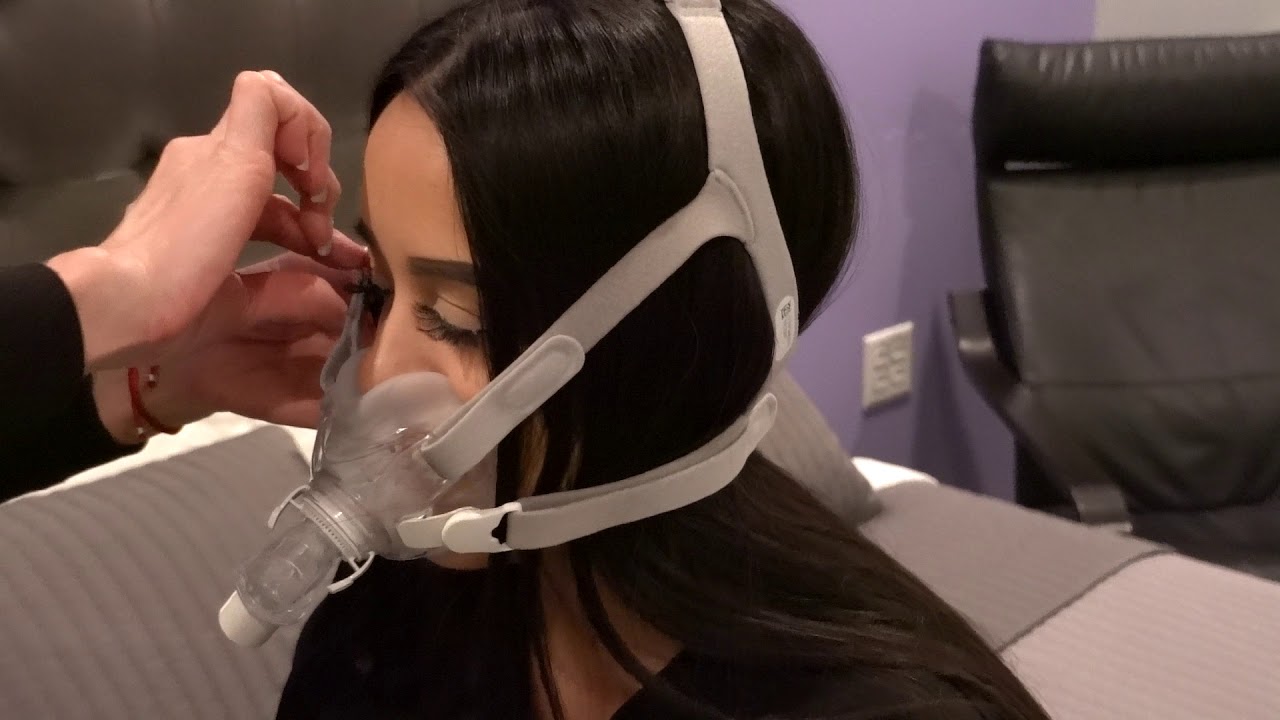
Finding it hard to tackle your sleep apnea? Do this
Dec 30 2022 Sleep Apnea Treatment how does sleep apnea happen is sleep apnea dangerous sleep apnea australia sleep apnea solutions sleep apnea symptoms sleep apnea treatmentAlthough it cannot be replaced, getting a good night’s sleep might be difficult if you have obstructive sleep apnea (OSA).
Sometimes throughout the night, people with sleep apnea have airway collapse, which causes them to stop breathing while they are sleeping. Dr. Mendez asserts that as a result, people “will shift into a lighter state of sleep or totally wake up.” According to the Australian Sleep Apnea Foundation, these awakenings may occur five to more than thirty times each hour.
People with sleep apnea usually have insufficient sleep, which frequently results in increased daytime fatigue. In addition to feeling sleepy, people may find it difficult to focus and handle emotional problems like grief.
Mendez claims that “sleep disruption also affects our hormones, namely by boosting ghrelin and reducing leptin, which may increase your appetite.” Additionally, it negatively affects immunity, making you more susceptible to illnesses like colds and other infections.
Additionally, sleep apnea may increase the risk of cardiovascular problems. According to a study that was published in February 2019 in the Australian Journal of Respiratory and Critical Care Medicine, people who experience daytime sleepiness as a result of sleep apnea may be more likely to develop heart failure, a chronic condition in which the heart is unable to pump blood effectively.
When you wake up from sleep, your breathing, blood pressure, and heart rate all increase, and your body is pumped with adrenaline, which is bad for your arteries and blood pressure, according to Mendez.
How to Identify the Symptoms and Signs of Sleep Apnea
While snoring is perhaps the most well-known symptom of sleep apnea, there are other symptoms as well. Other symptoms include gasping or choking while you sleep, breathing pauses at night (frequently noticed by a partner), excessive daytime sleepiness, waking up feeling exhausted, morning headaches, difficulty concentrating, memory problems, mood problems, and repeatedly waking up during the night to use the restroom.
If you have any of these symptoms, have recently been diagnosed with atrial fibrillation (an abnormal heartbeat), high blood pressure, or both, along with daytime sleepiness or without, Mendez urges that you talk to your doctor about the possibility of sleep apnea. He claims that snoring is not always present in women who have insomnia, and some people may become aware of their possible sleep problem owing to an activity tracker like a Fitbit.
Be open to the possibility even if you don’t think you exhibit “typical” symptoms of sleep apnea.
Mendez claims that if your doctor has a hunch that you have sleep apnea, he or she may then offer you an at-home sleep apnea test, avoiding the need for you to go to a sleep clinic for an assessment. The patients may get it a lot more quickly. The option to get this test might save your life, the speaker says.
How Sleep Apnea Treatment Can Increase Your Energy
If you have been given a sleep apnea diagnosis, the right treatment may help you stop feeling sleepy throughout the day. Your doctor can suggest that you make lifestyle changes, prescribe an oral or dental device that must be installed by a qualified dentist, or give you instructions on how to use a CPAP machine, which utilizes a mask to keep your airway open while you sleep. The best choice for you will be determined by your insurance coverage, the severity of your sleep apnea, and the availability of nearby experts.
You should avoid utilizing dental devices available over the counter or online to cure your sleep apnea on your own. These goods, in Mendez’s opinion, are not only not recommended, but they also could be dangerous. For instance, he asserts that certain dental products might damage your teeth.
The good news is that with proper treatment, your sleepiness should go away and your energy level should rise. Symptoms go away after a few days to a week or two, said Mendez. According to the doctor, how badly affected individuals feel and function during the day may fluctuate significantly after only one night.
Sleep apnea treatments that work
In addition to learning about a sleep apnea treatment, you may utilize these techniques to battle the fatigue you feel the next day.
Sleep on your side first, if possible.
Mendez claims that sleeping on one’s side, which maintains the airway open, may be all that’s necessary for people with mild kinds of sleep apnea. If you wear a T-shirt with a tennis ball sewed into the back or place a body pillow against your back, you may be able to keep yourself from rolling onto your back while you are sleeping.
Achieve fitness.
According to Mendez, who points out that additional fat may obstruct the airway, weight reduction often benefits the great majority of people with sleep apnea. In a research published in the journal Sleep Medicine in March 2014, it was shown that losing even a little amount of weight significantly decreased the likelihood that a person’s sleep apnea would worsen. In certain cases, weight loss may even be able to cure mild sleep apnea. Of course, not everyone who loses weight will benefit since even those who are thin or of a normal weight risk developing sleep apnea.
Find sleep-related treatments.
According to the NSF, sleep apnea is also associated with insomnia, a condition in which you have trouble becoming (and staying) asleep.
Mendez suggests consuming less coffee, avoiding using electronics after dark, and refraining from checking the clock. Get out of bed and do something pleasant if you’re having difficulties falling asleep, then try again later. You should also have any other medical conditions such limb mobility disorders, anxiety, or depression that can affect your sleep evaluated.
Make sure your food will provide you extra energy.
One of the best ways to increase your energy levels is by eating the right foods. Instead of stimulating foods like soda, candy, and other drinks with added sugar, go for healthy meals like fresh fruits and vegetables. (The Academy of Nutrition and Dietetics claims that they could offer you a momentary thrill but will soon cause an energy crash.)
Avoid drinking.
Even while drinking a bottle of beer or a glass of wine before bed may help you sleep, your sleep apnea may become worse. According to Mendez, drinking alcohol makes your palate floppy, which raises the chance that it may collapse and lock up. Additionally, alcohol alters the tone of the muscles in your upper airway. Additionally, you should try to avoid sedatives like benzodiazepines as these could exacerbate your bouts of sleep apnea.
Cardiovascular risk, metabolism, and sleep apnea
According to Jun, several studies have linked sleep apnea to issues including type 2 diabetes, strokes, heart attacks, and even a reduced lifespan. Why are they connected? For starters, he points out that individuals with sleep apnea often have obesity, which significantly raises the risk of diabetes, stroke, and heart attack. Obesity is often the primary cause of both illnesses, according to Jun.
However, it’s crucial to remember that not all people with sleep apnea are fat. Additionally, data point to a separate connection between sleep apnea and diabetes. According to research from Jun’s team and others, sleep apnea may raise blood sugar levels and is linked to an increased risk of diabetes, regardless of weight.
For those who are obese or overweight, losing weight is essential for treating or preventing sleep apnea. People who have excess fat around their neck, mouth, and upper abdomen are more prone to developing sleep apnea. This weight contributes to airway collapse during sleep by narrowing the neck and pressing on the lungs.
As they age, women in particular need to exercise caution. Premenopausal women often gain weight in their hips and lower body rather than their bellies, but this habit changes with time. Weight starts to build up in typically “masculine” places like the stomach, which increases the risk of sleep apnea.
“After menopause, hormones alter, and women often begin to resemble males in terms of where they put on weight. After menopause, women’s rates of apnea start to catch up to men’s, so it’s important to be aware of the hazards of this condition, says Jun. 15
For improved health, sleep apnea must be identified and treated.
Sleep apnea must be treated since it may have long-term effects on your health. Although several high-profile deaths associated with sleep apnea, like that of Judge Antonin Scalia, have been reported, Jun claims that the real danger comes from harm done over time.
According to the apnea-hypopnea index, the severity of obstructive sleep apnea may vary from moderate to severe (AHI). The AHI counts how many breathing pauses you have per hour while you sleep.
By degree of severity, obstructive sleep apnea is divided:
Your AHI must be more than 30 (more than 30 episodes per hour) to be diagnosed with severe obstructive sleep apnea.
Your AHI must be between 15 and 30 to be diagnosed with moderate obstructive sleep apnea.
Your AHI must be between 5 and 15 to be diagnosed with mild obstructive sleep apnea.
Depending on how severe your sleep apnea is, if you have symptoms like tiredness, and other health issues, you may or may not require treatment. For instance, your doctor could decide to treat even moderate sleep apnea if you have heart disease risk factors. However, if your sleep apnea is severe, your doctor may urge that you get treatment even if you don’t feel tired.
A breathing equipment known as a CPAP, or continuous positive airway pressure machine, is the major therapeutic option. To keep your throat open while you sleep, a CPAP machine pumps humidified air via your nose at a pressure that keeps it open. Breathing pauses are avoided as a result.
The first-line therapy, CPAP, is quite successful, according to Jun. Recent research from Johns Hopkins examined what happens to metabolism at night when people with sleep apnea don’t use their CPAP devices. According to the research, the apnea that followed increased blood sugar, heart rate, blood pressure, and stress hormones—a reaction akin to what could occur if you were made to stand in front of a group and speak. It’s a lot like that kind of stress reaction, claims Jun. “I would compare sleep apnea to something similar occurring every night.”
Related: Does weight loss eliminate sleep apnea?
Read More